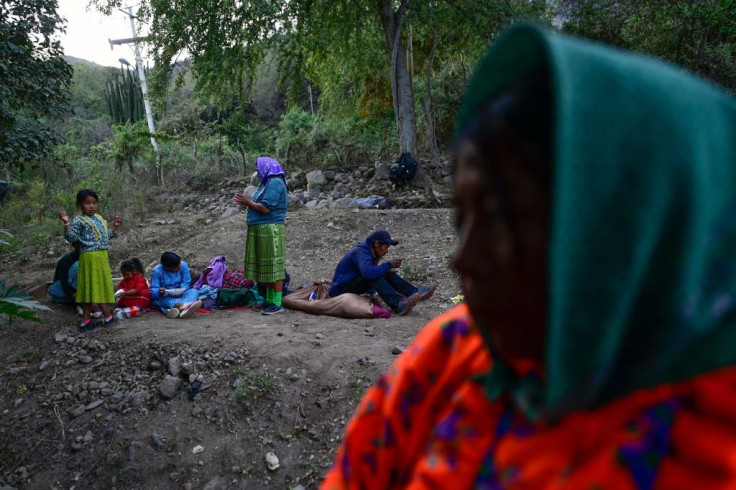
For years, rural communities in the southern Mexican state of Chiapas have endured cartel-related violence, including homicides, extortion, kidnappings, and forced displacement. The situation remains volatile, with criminal organizations tightening their grip on regions along the Mexico-Guatemala border.
According to new reports, the violence in Chiapas has once again driven families to leave the region and seek refuge elsewhere. Last week, more than 100 people fled their homes and crossed into Guatemala to escape ongoing threats from organized crime.
On Tuesday, Guatemalan authorities confirmed they had granted humanitarian stay permits to 161 Mexican nationals — including 39 families and 69 children — from the border community of Frontera Comalapa, according to a statement from the Guatemalan Institute of Migration.
The statement noted that the families are currently staying in temporary shelters, with relatives, or renting rooms near the border. They have received food and hygiene kits and will be allowed to remain in the country under temporary protection status for as long as they choose.
This marks the second known case of mass cross-border displacement from Chiapas in recent months. In 2024, nearly 600 people fled from the town of Amatenango de la Frontera due to intensified cartel violence in the area.
However, officials in Chiapas are now casting doubt on the motives behind the most recent departures. According to local authorities, many of those who fled to Guatemala have relatives who are currently under criminal investigation or facing arrest warrants in Mexico.
In a message posted to X, Chiapas Gov. Eduardo Ramírez Aguilar denied that the recent departures were caused by cartel violence, stating that "several of their relatives are currently detained and facing criminal proceedings." While acknowledging that previous administrations allowed organized crime to infiltrate communities like Frontera Comalapa, he insisted that his government has restored law and order to the region.
Reflexioné mucho antes de escribir este texto, pero es necesario que sepan que respecto a las personas que se fueron del ejido Sabinalito, Frontera Comalapa, y ahora se resguardan en Guatemala, les informo que varios de los familiares de ellos están detenidos enfrentando un… pic.twitter.com/ThIZdUhU9i
— Eduardo Ramírez (@ramirezlalo_) August 20, 2025
Ramírez also dismissed claims of forced displacement, attributing them to efforts by criminal groups operating in Guatemala to discredit the state's public security strategy.
"The government I lead is honest, morally grounded, and open to scrutiny," Ramírez wrote. "Let me be clear: I will always act within the framework of the law, with transparency and moral authority, and I will continue to guarantee peace and public safety in our state."
His remarks were echoed by Chiapas Attorney General Jorge Luis Llaven Abarca, who told Mexican media that intelligence reports suggest up to 50 individuals with links to criminal organizations have been hiding for the past three months in communities near the Guatemala border.
💥“Tenemos información que estas personas son familiares de muchos de los que cuentan con orden de aprehensión”, afirma el fiscal general de Chiapas, Jorge Luis Llaven Abarca, sobre la permanencia de 161 mexicanos refugiados en Guatemala. 👈#FórmulaNoticias con José Cárdenas… pic.twitter.com/gbdifFnNkT
— Grupo Fórmula (@Radio_Formula) August 21, 2025
As noted, mass displacement caused by cartel violence is not new to Chiapas.
According to the Internal Displacement Monitoring Centre (IDMC), Mexico registered 25,543 new cases of displacement due to violence in 2024. One of the most significant incidents occurred in the town of Tila, where nearly 5,000 people were forced to flee last year amid ongoing cartel-related conflict.
© 2025 Latin Times. All rights reserved. Do not reproduce without permission.







